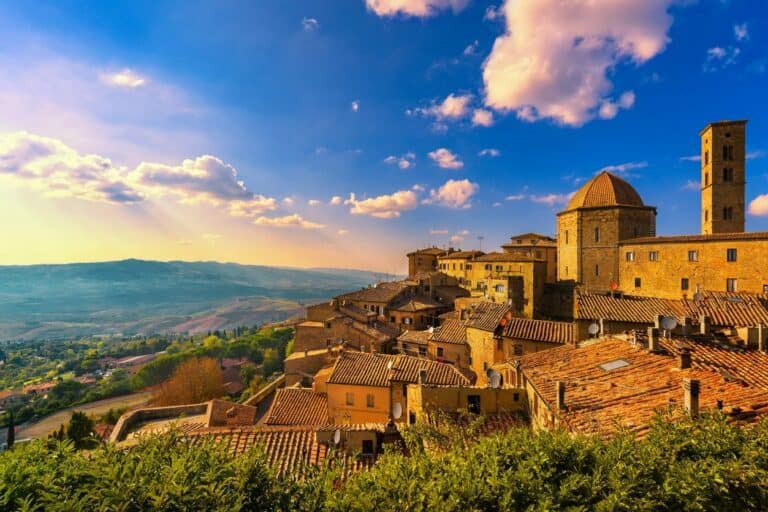Millions around the world celebrate Christmas on December 25. Another popular religious celebration occurs in Turkey around this time – the Mevlana festival is held in December and reaches its crescendo on December 17 when it ends on a spectacular note as on this day Mevlana’s union with Allah is celebrated.
December 17 is the night of Mevlana‘s death. Thousands of people from all around the world will gather at the magnificent 13th century Mevlana Mausoleum to celebrate Seb-i Arus, his ‘Wedding Day’, his reunion with his Beloved, with the Divine.
The celebration is held in Konya, a city located on the Central Anatolia high plateau. Perhaps you are familiar with the well-known Turkish author, Ahmet Hamdi Tanpınar who mentions Konya (İconium, in Biblical times) as one of the five cities in his popular literary work, “Five Cities” (Beş Şehir). Many who travel in December come to pay their respects to Mevlana Jelaluddin Rumi (1207–73) by a visit to the tomb of Mevlana (also known as Rumi) and attend the ceremony.
One of the reasons the Mevlana festival is popular is because of the special ceremony where Dervishes dance in accordance with the teachings of the great mystic poet of Islam, Mevlana, also known as Rumi). They wear white robes and conical hats, and twirl to drums and a shepherd’s pipe.
The mesmerizing circular dance represents the harmony of the spheres and is an expression of cosmic love. It lasts for about an hour. The dancers hold one hand up to God and one hand down to the earth, symbolizing union with God through trance. This Sufi dance was banned under Atatürk. Recently, it has been revived as part of Turkey’s social history.
If you are not familiar with any Mevlana sayings, here is a popular one: “Let the beauty you love be what you do. There are a thousand ways to kneel and kiss the earth.”
Another popular one is: “Come, come whoever you are! Come heathen or worshipper. This is not a teaching of despair. Come even though you broke your promise 1,000 times. Come, still and come again. Come.”
Guests often ask me what Alevism is or what Sufism is. I have found it is best to explain Alevism as being a form of Islam with some of its own distinctions from mainstream Islamic tradition and Sufism. Alevism is practiced all over Turkey but the Alevi population is denser in the areas of Elazığ, Nevşehir, Malatya, Maraş, Sivas and Yozgat.
It contains elements from Shiite Islam, Zoroastrianism and Judeo-Christianity as well as other religious influences. Hacı Bektaş-I Veli,(1209-1271) a Muslim mystic and founder of the Bektaşi Sufi order, (1209-1271), saw Ali, the Prophet Muhammad’s nephew and later son-in-law, as the rightful successor to the Prophet.
If you are planning to visit Turkey in the summer and are interested in religion, you would enjoy going to the Hacı Bektaş festival held every year on Aug. 16-18 in the town of the same name. By the way, the town, Hacıbektaş, formerly Karahüyük, is a town and district of Nevşehir province in Central Anatolia.
It may not be too late to plan a trip to Konya, but do not delay! The 13th century Mevlana Mausoleum with its mosque, dance hall, dervish living quarters, school, and tombs of some leaders of the Mevlevi order has become a popular tourist place. Many visitors view the trip as a pilgrimage. The mausoleum continues to draw pilgrims from all parts of the Muslim and non-Muslim world.
Rumi is admired by many as a philosopher and mystic of Islamic thought. Rumi’s doctrine advocates unlimited tolerance, positive reasoning, goodness, charity, and awareness through love. His philosophy is remarkably popular as it purports that all religions are truth and that all people should be treated equally, whether they are Muslim, Jew or Christian. Most with whom I have talked with after their trip, say they enjoyed the main event – the “sema” dance with the whirling Dervishes. Be sure and book in advance!
May the words of wisdom and compassion and peace expressed by Rumi bring comfort to a troubled world…
“What is a highway to one is a disaster to the other.” — Rumi (“The Essential Rumi”)
“Come, come, whoever you are, wanderer, worshipper, lover of leaving. Ours is no caravan of despair. Come, even if you have broken your vow a thousand times. Come, yet again, come.” — Mevlana
We hope you find this an interesting article providing more information on the religion of Islam and some of the variances of the religion adhered to by some Muslims.

Judaism
If you ever talk to someone from the Jewish faith these are some of the arguments you might here. “It’s idolatry…

The Trouble with Small Towns
I have to confess I wasn’t born in a small town, and I haven’t always lived in small towns. My graduating…

Simple Ideas to Share the Good News
Sharing the good news of Jesus Christ can be accomplished in a variety of ways. Take time to study up on…

Gravitate to Success
Have you ever noticed that people gravitate to success? They love being involved with anything that’s successful. Involvement is among the…

Their Cause is Noble!
We must not forget his or her service. Have you honored a veteran by going out of your way to say…

Thanksgiving Never Grows Old!
Thanksgiving never grows old! It means to express gratitude, especially to God. “Giving thanks always for all things unto God and…




